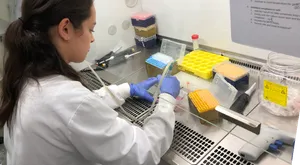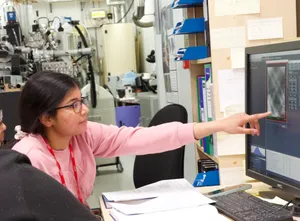Recent Developments in the Patho-Physiological Molecular Clocks Lab
Congratulations to Dr Rachael
 |
Congratulations to Dr. Rachael for passing her PhD viva 30 Jan 2026. Rachael has been in or around the lab since her undergraduate days. First as a summer student in 2019 to now finish her PhD in the MRC DTP in IBR and already working on the next steps in her career as producer at the Naked ScientistLink opens in a new window. Thanks to Mark Wall and Carlos Escudero for examining Rachael. |
Congrats to Dr Pragya!
 |
As they say, with flying colours, Pragya passed her viva. Pragya's work was together with Peter Sadler (Chemistry) and myself and was funded by a WIF scholarship in collaboration with Anglo American Thanks to Claudia Blindauer and Luca Salassa for viva-ing Pragya. |
It's that time of year again: The Winter Blues, a SAD story
But if you want to hear something on how what to do against low mood in the fall and winter, and also be depressed because of new monkey pox and leaks in Chernobyl, then head over to the Naked ScientistLink opens in a new window.
Morning Immunochemotherapy in Cancer better once more, now in SCLC
Robert and Seline have commented on a new paper in the journal Cancer on chronoimmunochemotherapy in patients with small cell lung cancer showing a beneficial effect of early immunotherapy in this disease (Huang et al. doi: 10.1002/cncr.70126Link opens in a new window) in an article in New Scientist this week.

